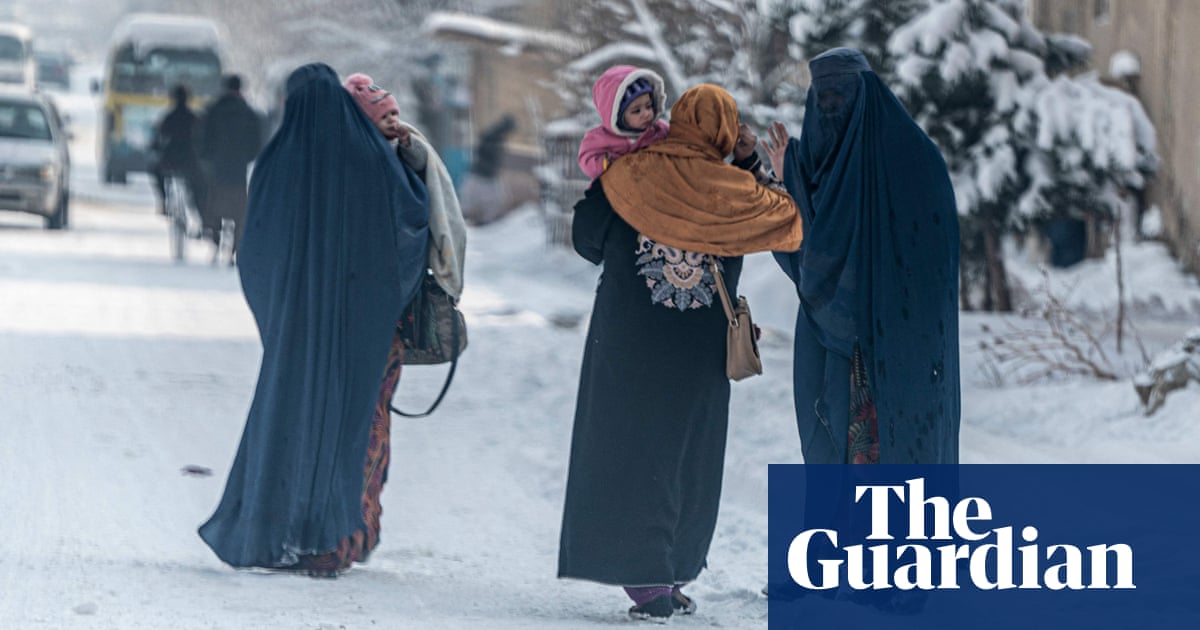
Western countries have risked causing further harm to Afghan women by withdrawing funding and suspending operations in protest against Taliban policies that adversely affect women, the International Crisis Group said in a report today.
The Brussels-based thinktank said outside powers should hold the Taliban to account for its bans on secondary and university education for girls and women as well as on those working for non-governmental organisations, but they should avoid “self-defeating” policies that left women without services.
“Donors are turning away from Afghanistan, disgusted by the Taliban’s restrictions on women’s basic freedoms. However, cutting aid to send a message about women’s rights will only make the situation worse for all Afghans,” said Graeme Smith, ICG’s senior consultant on Afghanistan.
“The most principled response to the Taliban’s misogyny would be finding ways to mitigate the harms inflicted on women and other vulnerable groups.”
Several leading charities suspended their operations in Afghanistan in December, calling on the Taliban to reverse its decision to ban female humanitarian staff working for aid agencies. About a third of the agencies’ workforce are women, who are seen as vital in providing services in a culturally appropriate way.
Though the Taliban has since made exceptions for women working in healthcare or education, which has allowed NGOs to resume some operations, they say the Taliban’s restrictions have made it difficult for them to carry out their work.
“Banning female humanitarian workers prevents us from reaching half of the population. Due to cultural norms in the country, male aid workers cannot register women and girls to receive aid, it must be done by other women,” said Mélissa Cornet, an adviser for Care Afghanistan.
Save the Children said last week that after the ban, women had reported being overlooked by male-only humanitarian teams if they were not accompanied by a male family member.
According to a survey of humanitarian workers by UN Women, the biggest issues were being able to assess needs and provide information.
“In Afghanistan, it is not culturally acceptable for men to do humanitarian assessments with women and girls, so without female staff we struggle to do meaningful assessments on the impact on women,” said Becky Roby, the Afghanistan advocacy manager with the Norwegian Refugee Council.
Roby said it was unsustainable for two-thirds of Afghanistan’s population to depend on humanitarian aid and a political roadmap was needed that included direct engagement with the Taliban.
She said the NRC hoped the Taliban “will see sense” but until that point it does not feel it could safely or effectively reach women and girls.
“We are sticking to our principles on this topic, because it is these principles that help us access the people who are most in need and the most vulnerable,” she added.
The ICG report said many western officials supported the idea of cutting the Taliban off as a consequence of the policies but that the group’s record, including when it was in power in the 1990s, showed it was unlikely to respond to such pressure.
It said the decisions of western powers risked doubling the impact in a society where women bore the brunt, by taking smaller rations or through girls being forced into early marriages.
It called for greater funding for humanitarian campaigns, more work to be done on infrastructure and supporting agriculture – where most women earn their livelihood – and negotiating concessions at a local level with Taliban officials.












